Editor's note
|
|
Editing Curious Kids – where we ask academic experts to answer real questions from real kids – is the highlight of my working week. The questions are brilliant, of course, but I also love how determined the academic authors are to craft replies that are informative and engaging, but not condescending.
And in amongst all the grant-writing, research and day-to-day work of academia, engaging with insatiably curious young minds is a nice reminder for many of why they became topic experts in the first place. Or so I have been told.
Read more: Curious Kids: Why does English have so many different spelling rules?
This year saw the launch of the podcast Imagine This, a co-production between ABC KIDS listen and The Conversation, based on our Curious Kids articles.
Hosted by Brianna Peterson, Imagine This tackles topics we’ve covered before in Curious Kids, including: Why does rain only come from grey clouds? Why are mosquito bites itchy? and Do animals sleep like people?
And many more! You can see the full episode list here. And I speak from some personal experience when I say: Imagine This is a god-send if you are contemplating a long car trip with kids these holidays.
I’ve listed below some highlights from Curious Kids this year, sorted into some broad categories. It’s not an exhaustive list and you can see all our Curious Kids stories over here. I hope any young minds in your household find something they like in there – and may be inspired to send their own questions to by emailing me.
|
Sunanda Creagh
Head of Digital Storytelling
|

|
|
If you like space…
|
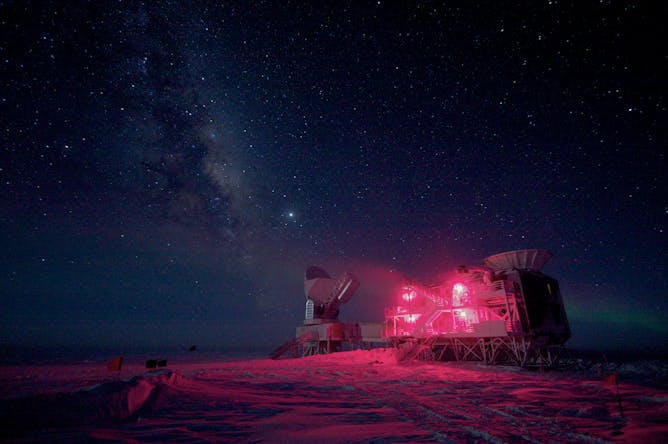
The South Pole Telescope and BICEP telescopes (pictured above) may discover clues that could teach us if there was something else ‘before’ the Big Bang.
Dr. Keith Vanderlinde/NSF
Jake Clark, University of Southern Queensland; Belinda Nicholson, University of Southern Queensland; Josh Calcino, The University of Queensland
Long ago in the distant past, our entire Universe was microscopic – just like an atom – and obeyed completely different rules of cause and effect.
|
|
|
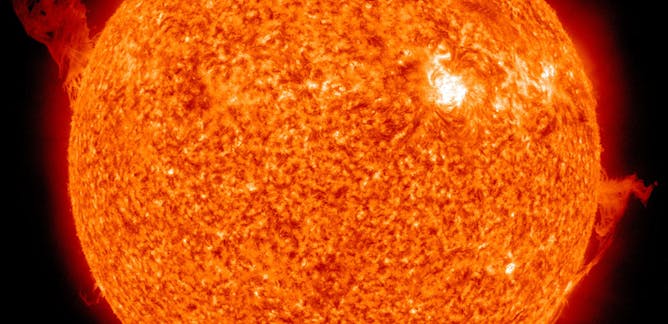
Brad Carter, University of Southern Queensland; Jake Clark, University of Southern Queensland
There are lots of places where it's much, much hotter than the Sun. And the amazing thing is that this heat also makes new atoms - tiny particles that have made their way long ago from stars to us.
| |

Jonti Horner, University of Southern Queensland
There are probably more than a million planets in the universe for every single grain of sand on Earth. That's a lot of planets. My guess is that there probably is life elsewhere in the Universe.
|
|
|
If you like animals…
|
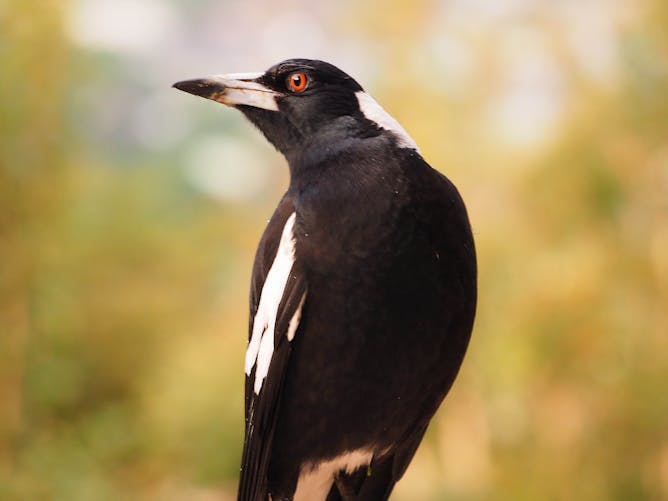
The composition of black and white in a magpie’s poo differs between species. Some splatter more of the uric acid (white), some have more black (indigestible solids). It depends on their diet.
Gisela Kaplan
Gisela Kaplan, University of New England
Like reptiles, birds do not have two separate exits from the body. They have one, called the cloaca. It is quite similar to the human anus but the cloaca expels both indigestible bits and toxins.
|
|
|
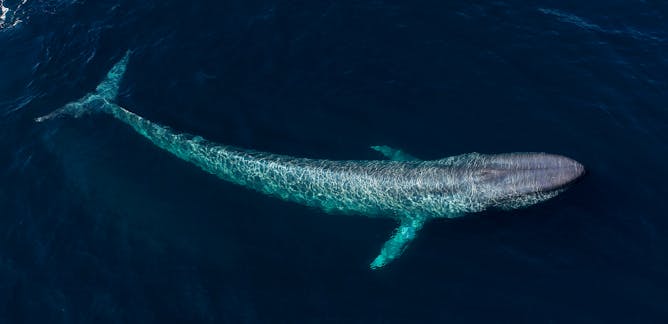
Wally Franklin, Southern Cross University; Trish Franklin, Southern Cross University
The only sea creature known to attack blue whales is the orca, also known as a 'killer whale'. But humans present a much bigger threat to them.
| |
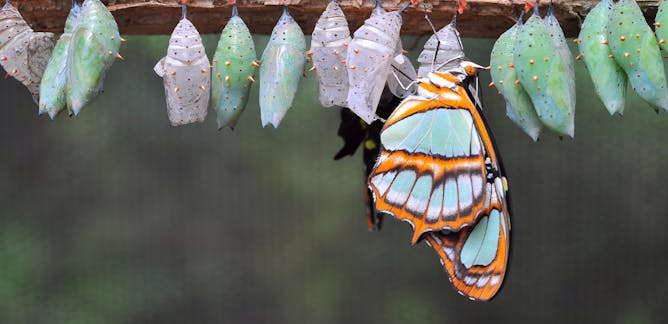
Michael F. Braby, Australian National University
Scientists were not sure if an adult butterfly could remember things it learned as a caterpillar. Then a study by a team of US scientists found something very interesting.
|
|
|
If you like technology…
|

How many times have you heard “get out of the way!” when someone is trying to change the channel?
Willemvdk/flickr
Andrew Maxwell, University of Southern Queensland
Even the Voyager spacecraft are controlled remotely, 20 billion kilometres away. It takes 20 hours for instructions to travel from Earth to the spacecraft but we can do it -- using a remote.
|
|
|

Tim Dean, University of Sydney
Are you dreaming that you're awake or are you living in a computer simulation? There might be no way to be sure.
| |

Andrew Dowse, Edith Cowan University
Secondary radar is an important tool in the control of aircraft traffic, and helps make air travel safe. It was developed during dangerous times.
|
|
|
If you like nature…
|
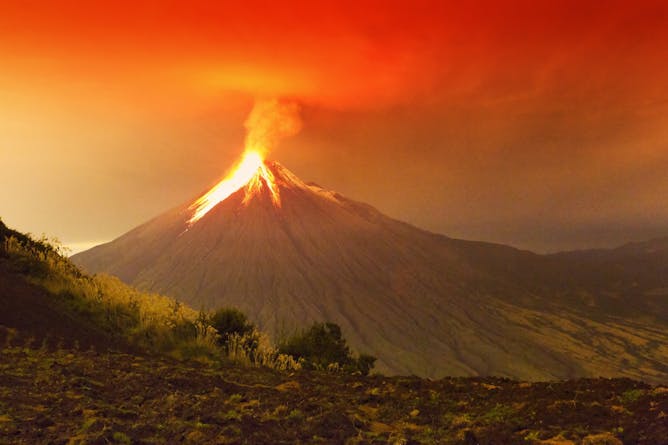
Some explosive volcanoes can send ash high up into the sky and it can travel around the world over different countries.
Shutterstock
Heather Handley, Macquarie University
When magma rises towards the surface gas bubbles start to form. Whether or not they can escape as the magma is rising affects how explosive the eruption will be.
|
|
|
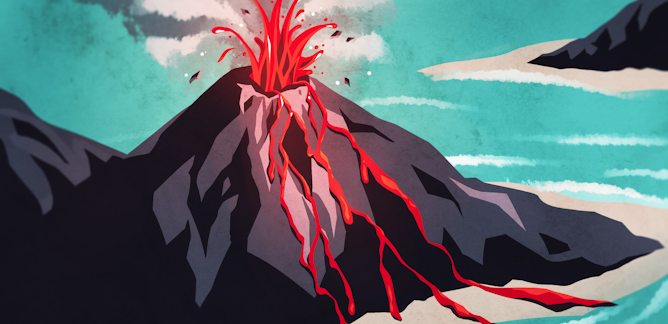
Richard John Arculus, Australian National University
The short answer is that while lava is hot, it's not hot enough to melt the rocks that make up the side of the volcano.
| |

Andrew B. Watkins, Australian Bureau of Meteorology
Wind is just air moving from one place where there is high pressure to another place where there is low pressure.
|
|
|
If you like physics, chemistry and forces…
|
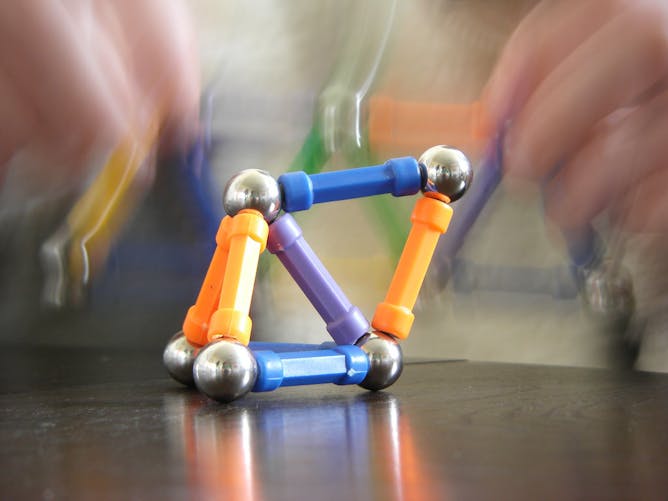
Every magnet has two sides: a north pole and a south pole.
Helena/flickr
Stephen G Bosi, University of New England
The energy needed to pull magnets apart comes from you, and you get it from the food you eat. And the plants or animals you eat get their energy from other plants and animals, or from the Sun. All energy comes from somewhere.
|
|
|
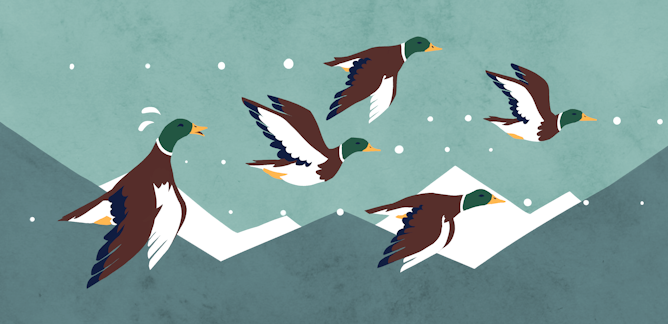
Simon Griffith, Macquarie University
To stay up, the bird must overcome gravity with a force called 'lift'.
| |
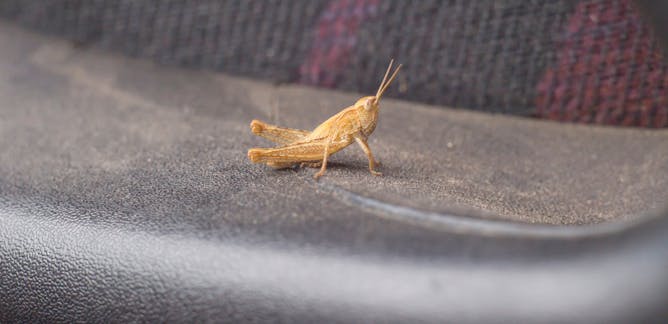
Kate Wilson, UNSW
If the insect wants to stay right in front of your nose, it must fly forwards just a little bit when the car is speeding up. But when the car is at constant speed, it only needs to hover.
|
|
|
If you like knowing how our bodies work…
|

Ah-choo!
Shutterstock
Kim Murphy, Monash University
Many people think green snot means you are really sick, or that you need antibiotics. Not true. Green snot is actually a sign that our immune system is working and that we are getting better.
|
|
|

Anna Vinkhuyzen, The University of Queensland
Every human carries an instruction booklet with a very special code, called DNA. Our eyes cannot read the code, but our bodies can. The code tells our body what to do and how to look.
| |
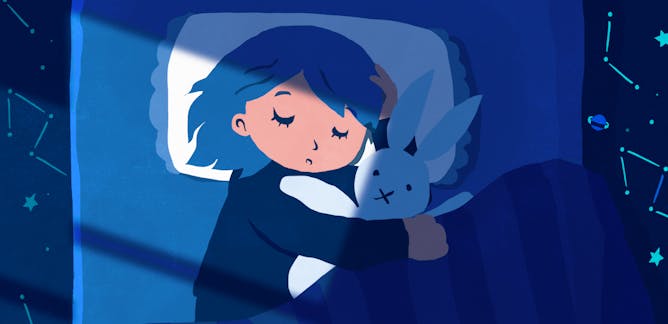
Michael Gradisar, Flinders University
The most interesting part of our body that changes during sleep is our brain.
|
|
|
| |
Featured jobs
|

|
CSIRO — Canberra, Australian Capital Territory
|

|
La Trobe University — Melbourne, Victoria
|

|
CURTIN UNIVERSITY — Bentley, Western Australia
|

|
University of Melbourne — Melbourne, Victoria
|
|
|
|
| |
| |
| |
| |
| |
|
|